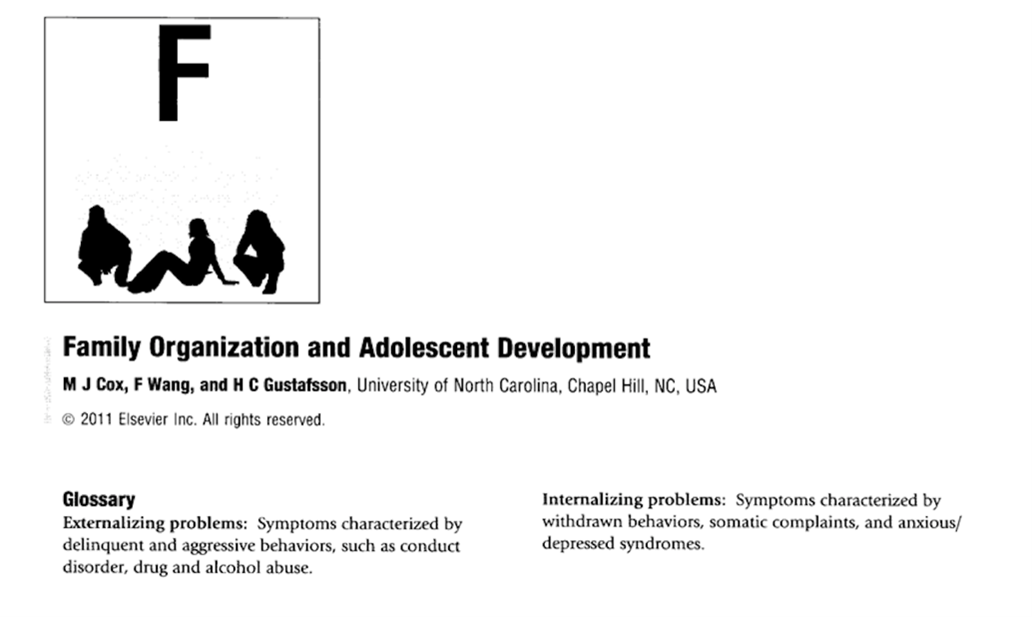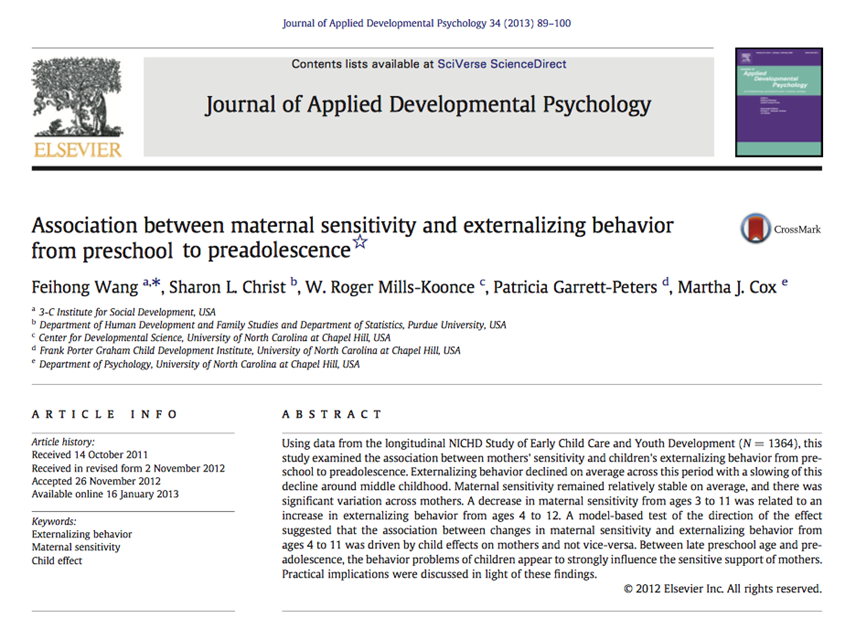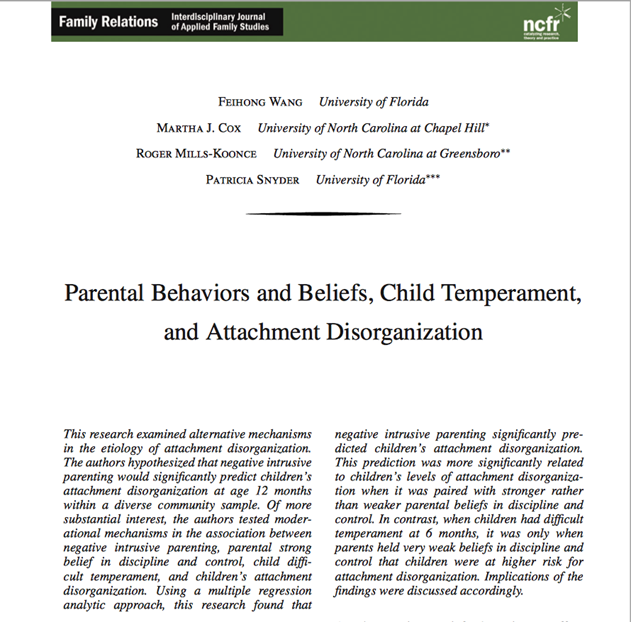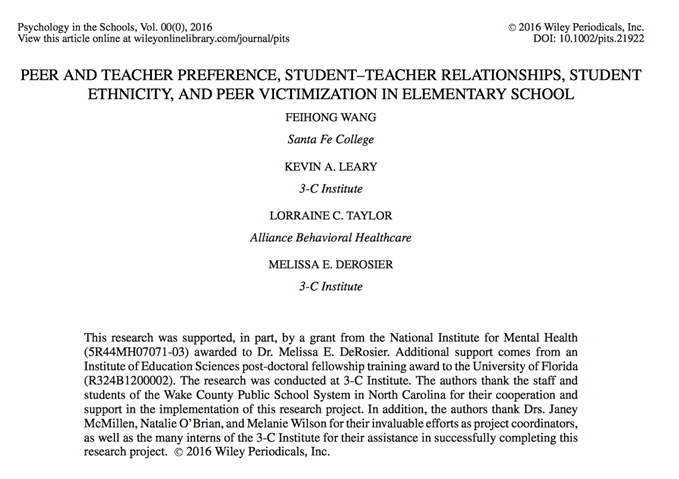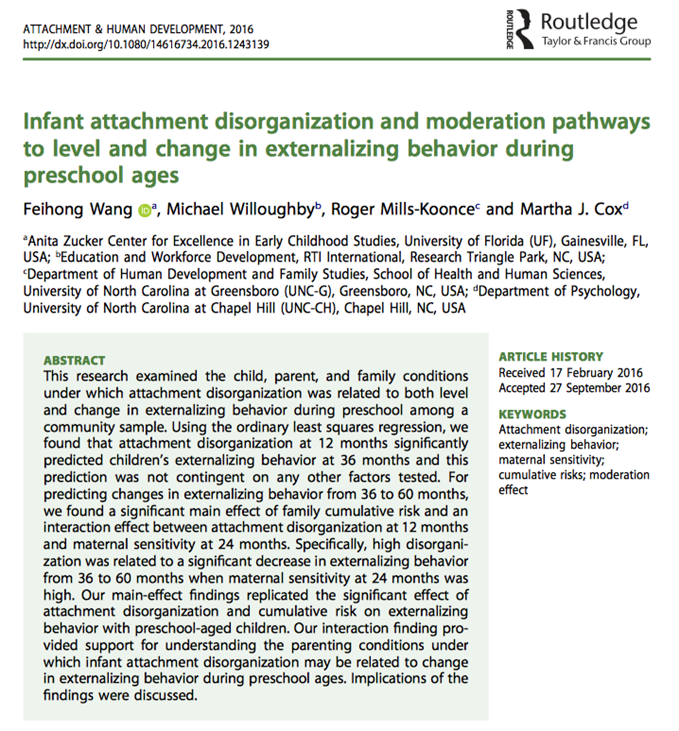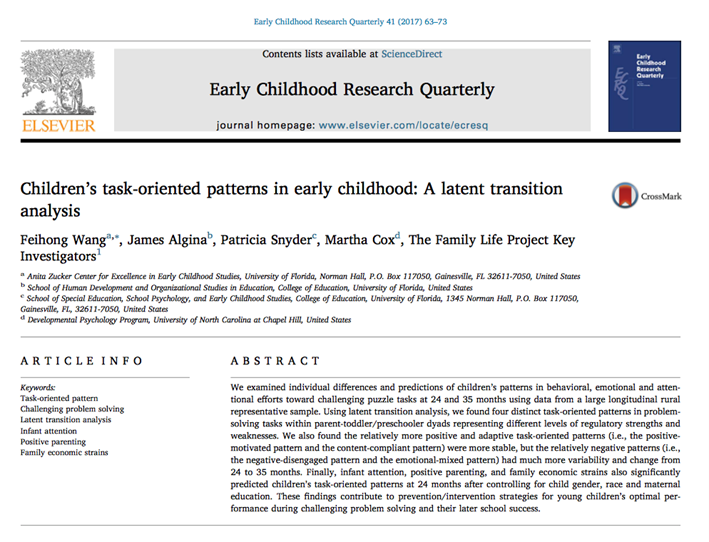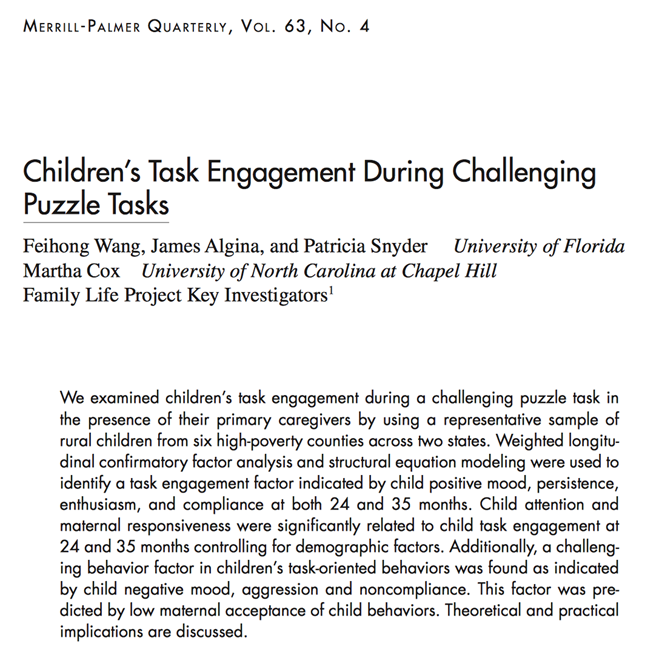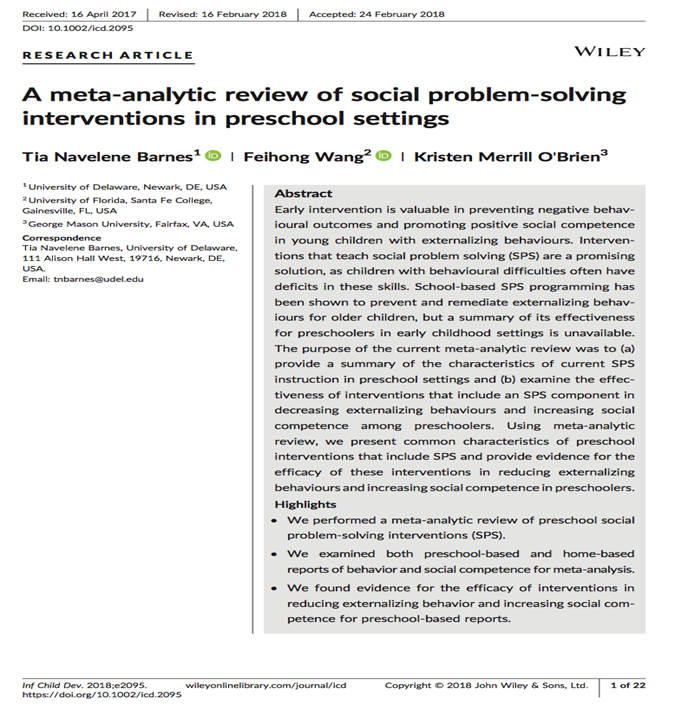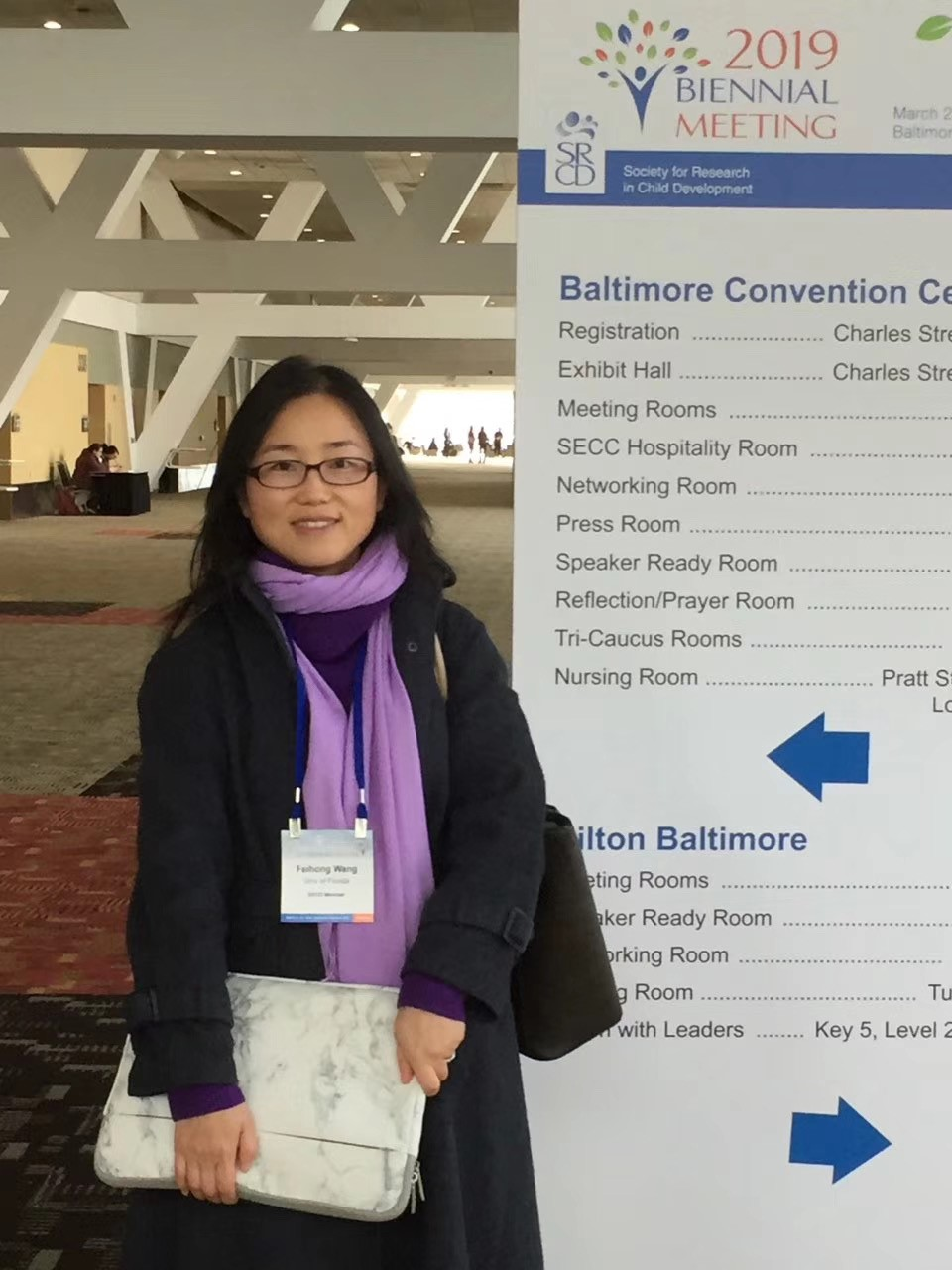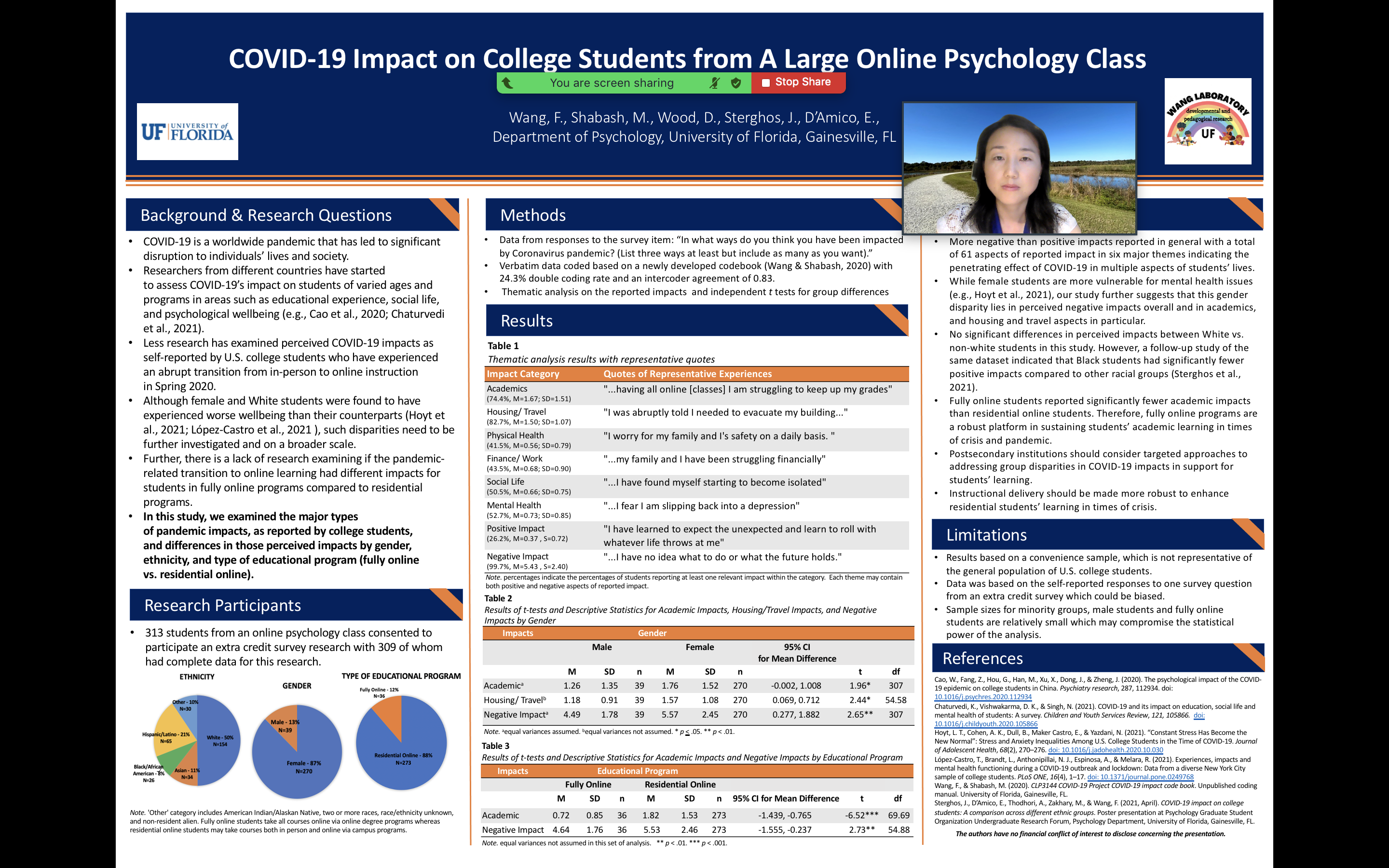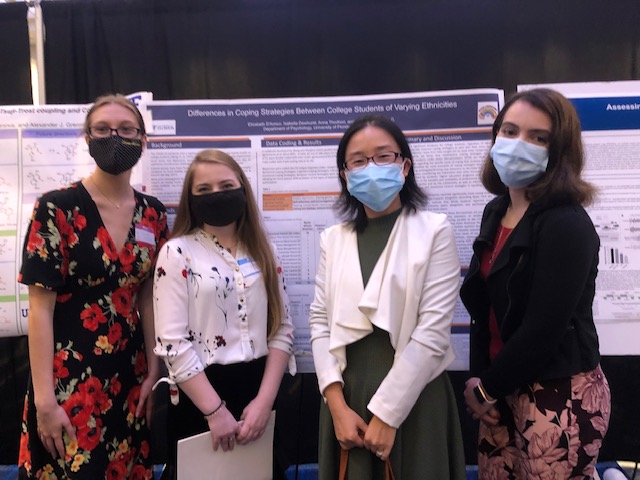Dr. Wang started her Developmental and Pedagogical Research Laboratory in Spring 2020. Since then, she has provided experiential research opportunities (e.g. data coding, data analysis, conference presentation, manuscript collaboration, etc.) for undergraduate students interested in developmental and pedagogical research:
Laboratory in Spring 2020. Since then, she has provided experiential research opportunities (e.g. data coding, data analysis, conference presentation, manuscript collaboration, etc.) for undergraduate students interested in developmental and pedagogical research:
To Learn!
To Grow!
To Contribute!
Dr. Wang carries three major lines of research:
- The first focuses on infant attachment, family processes, and school dynamics as they relate to the mental and behavioral health of children at risk. For this focus, she uses diverse samples of children from existing datasets– including open-science resources– and advanced statistical modeling.
- The second line examines how child and family factors influence children’s task engagement in challenging puzzle tasks, and how task engagement in early childhood predicts children’s academic and social outcomes during elementary school years (using data available at Research Connections).
- Her third line of research broadly examines impacts of the COVID-19 pandemic on college students and their concurrent adaptation toward physical, mental, and academic well-being.
Dr. Wang’s Representative Publications:
*D’Amico, E., *Thodhori, A., Wang, F. (in press). College student coping Strategies during COVID-19: Differences across gender, ethnicity, and academic level. Merrill-Palmer Quarterly.
Wang, F., Shabash, M. & Sterghos, J. (2022). The impact of COVID-19 on students from a large online class. European Journal of Psychology and Educational Research, 5(2), 89-101. doi.org/10.12973/ejper.3.2.89
Barnes, T., Wang, F., & Merrill, K. (2018). A Meta-analytic review of social problem-solving interventions in preschool settings. Infant and Child Development, 27, 1-22. doi: 10.1002/icd.2095
Wang, F., Algina, J., Snyder, P., Cox, M., & the Family Life Project Key Investigators. (2017). Children’s task engagement during challenging puzzle tasks. Merrill- Palmer Quarterly, 63, 425-457. doi: org/10.13110/merrpalmquar1982.63.4.0425
Wang, F., Algina, J., Snyder, P., Cox, M., & the Family Life Project Key Investigators. (2017). Children’s task-oriented patterns in early childhood: A latent transition analysis. Early Childhood Research Quarterly, 41, 63-73. doi: 10.1016/j.ecresq.2017.05.006
Wang, F., Mills-Koonce, R., Willoughby, M., Cox, M. (2016). Infant attachment disorganization and moderation pathways to level and change of externalizing behavior during preschool ages. Attachment and Human Development, 18, 534-553. doi: 10.1080/14616734.2016.1243139
Wang, F., Leary, K., Taylor, L., & DeRosier, M. (2016). Peer and teacher preference, student-teacher relationships, and peer victimization in elementary school. Psychology in Schools, 53, 488-501. doi: 10.1002/pits.21922
Wang, F., Cox, M., Mills-Koonce, R., & Snyder, P. (2015). Parental behaviors and beliefs, child temperament, and attachment disorganization. Family Relations, 64, 191-204. doi: 10.1111/fare.12120
Wang F., Christ, S., Mills-Koonce, R., Garrett-Peters, P., & Cox, M. (2013). Association between maternal sensitivity and externalizing behavior from preschool to preadolescence. Journal of Applied Developmental Psychology, 34, 89-100. doi: 10.1016/j.appdev.2012.11.003
Cox, M. J., Wang, F., & Gustafsson, H. C. (2011). Family organization and adolescent development. In B.B. Brown & M.J. Prinstein (Eds.) Encyclopedia of Adolescence (Vol. 2) (pp.75-83). London: Elsevier. https://www.researchgate.net/publication/256011594_Cox_M_J_Wang_F_Gustafsson_H_C_2011_Family_organization_and_adolescent_development_In_BB_Brown_MJ_Prinstein_Eds_Encyclopedia_of_Adolescence_Vol_2_pp75-83_London_Elsevier
